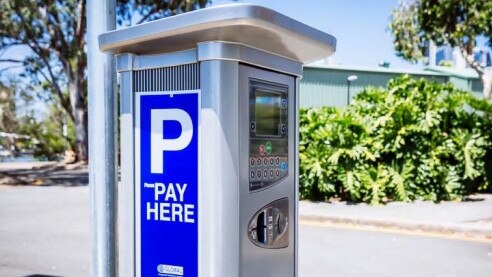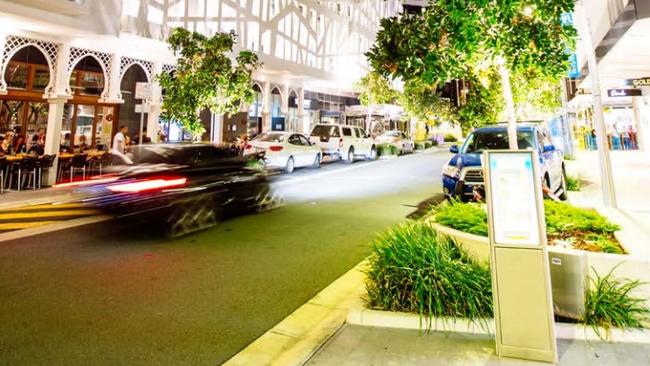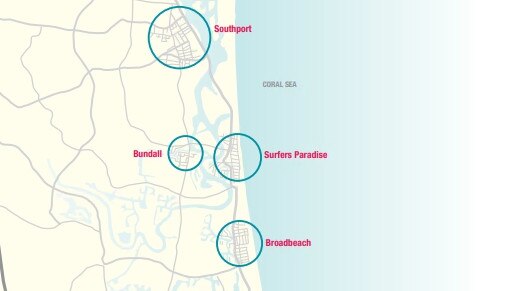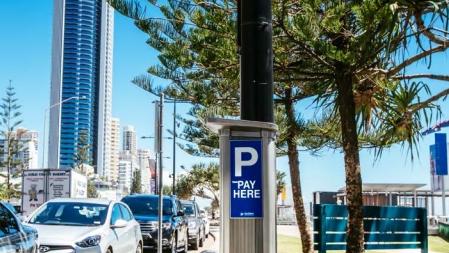Exclusive: Shock figures about parking which shows why you are not being fined
Motorists are avoiding millions of dollars in parking fees with council insiders suggesting the city’s expensive smarter parking system technology is to blame.
Gold Coast
Don't miss out on the headlines from Gold Coast. Followed categories will be added to My News.
- What the light rail skyline will look like from Broadbeach to Burleigh
- Nobby Beach towers — how light rail will play a role
RESIDENTS are dodging millions of dollars in parking fees with council insiders suggesting the city’s expensive – and supposedly “smarter” – parking system technology is to blame.
Budget review papers show revenue for regulated parking on the Gold Coast is down by more than $2.6 million to the March quarter, the Bulletin can reveal.

Councillors in closed door budget sessions have been advised about the lower revenue, tracking at between 50 per cent to 75 per cent less than what it should be.
Regulated parking revenue was flagged as a “significant variation” during the budget review which warned the projected figures were based on lower based infringement levels and start-up of new sensors in March.
But council in a response maintains several factors are at play including COVID-19 restrictions. Councillors are expected to raise it at committee meetings this week.

Sources predict across a 12-month period the loss of revenue from parking meters could be as high as $3 million.
The sensors are in the numbered parking bays in regulated parking areas like Surfers Paradise, Broadbeach and Southport, and send a message once a vehicle is parked above them, giving motorists a few minutes to start paying a fee.
If the revenue drop-off cannot be solved, infringement officers will need to return to street policing which can cause conflict with motorists.

A council source told the Bulletin: “If the sensors are not giving the information, then the only way will be to go back to the old scheme of giving tickets. The sensors were the beacon to get all this revenue for council. They are playing up.
“Senior staffers are on sick leave. The sensors are playing up big time. It’s not being managed.”
In 2014, a $10 million project which included state-of-the-art meters, a smartphone app and ground-based sensors, was rolled out in parking hot spots and predicted to help combat the then $548,000 drop in revenue in the previous financial year.
A year later the council had raised an extra $5 million in parking fees in just 12 months, after a whopping 35,000 extra parking tickets were issued.

But the system was soon under review after many motorists – furious about the meters – failed to accept payment, leading to fines. Councillors were also opposed to a move from bureaucrats to use the systems to gain revenue from parking for special events.
A city spokesperson told the Bulletin: “During the 12-month period of March 2020 – March 2021 there was a reduction of approximately $3 million in parking revenue. The reduction in parking infringements can be attributed to a combination of factors, including COVID-19 and delays to our planned rollout of new parking sensor technology.
“There are 6000 sensors deployed across the city, with half currently operational. The remaining sensors will be active by August 2021. Only 10 sensors have malfunctioned.
“The City consistently monitors illegal parking across the city, with a focus on areas that receive a high number of complaints. It would be inappropriate to comment on staffing matters.”



